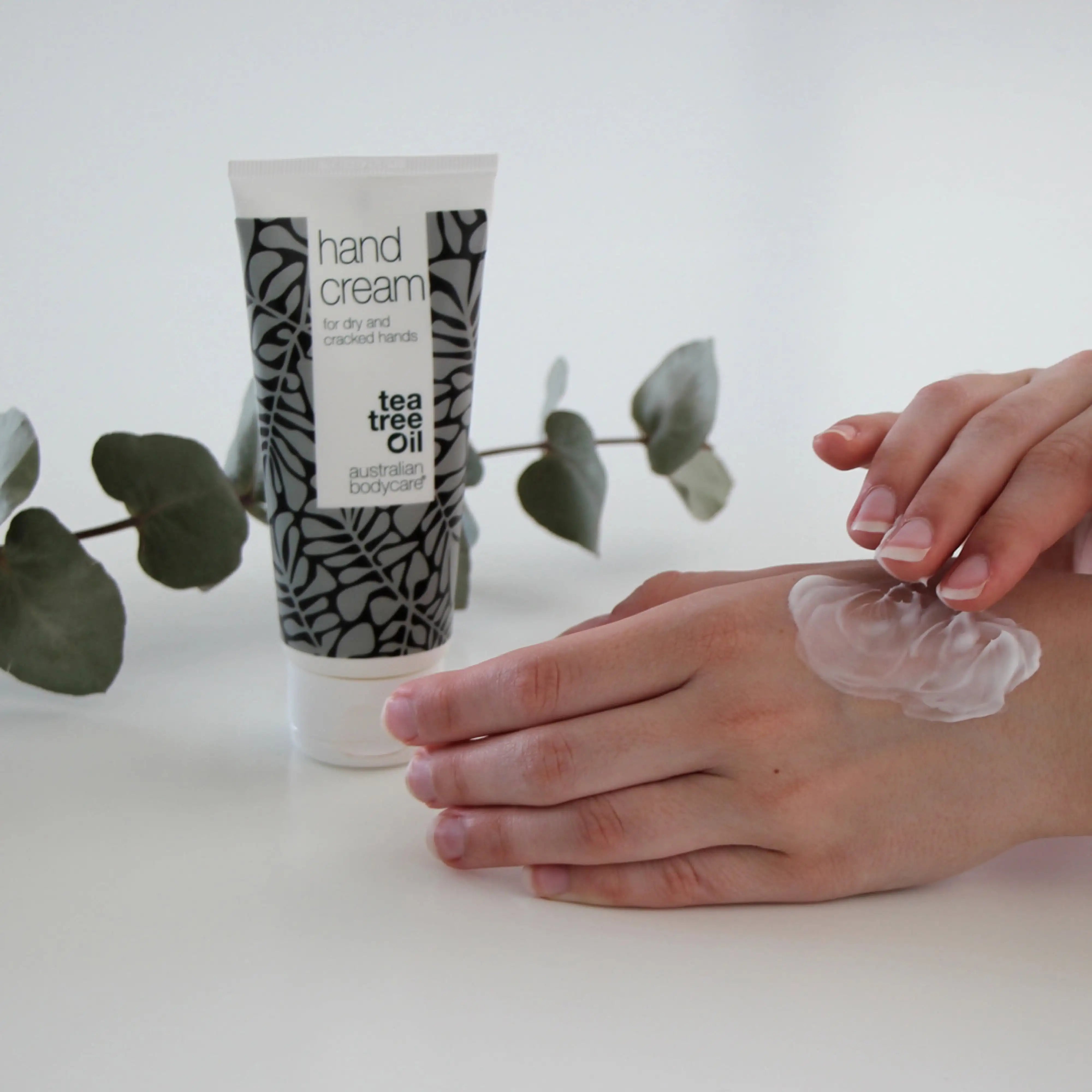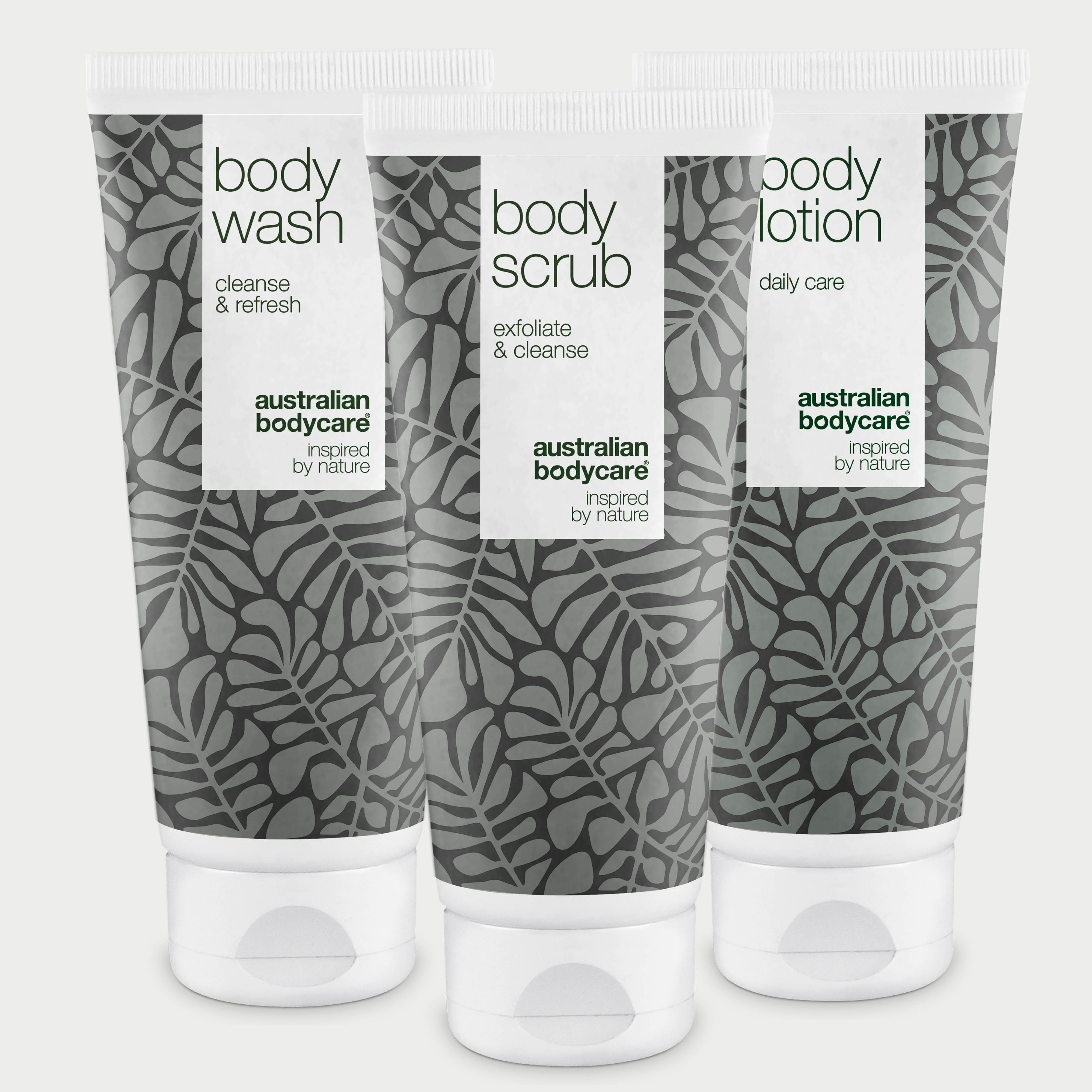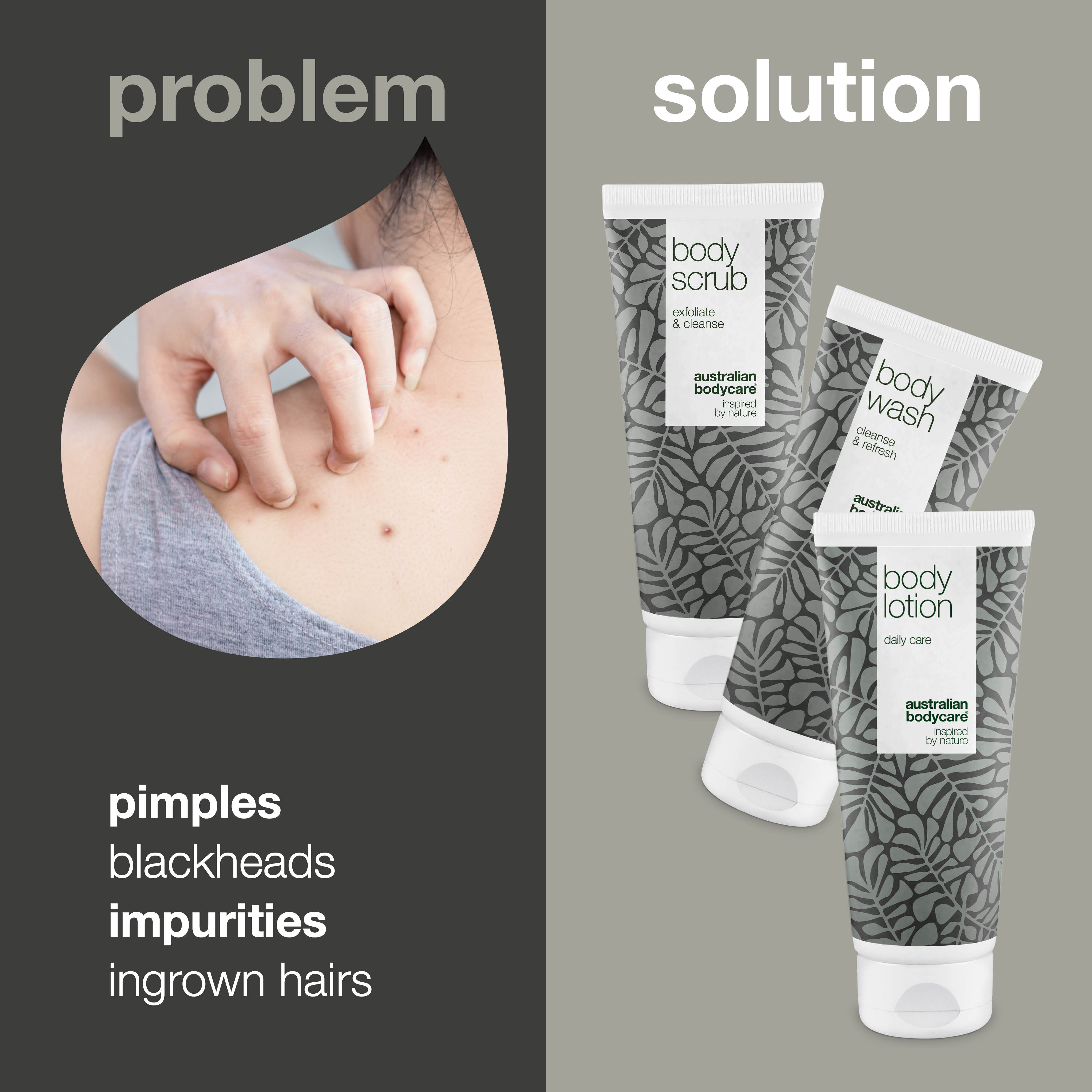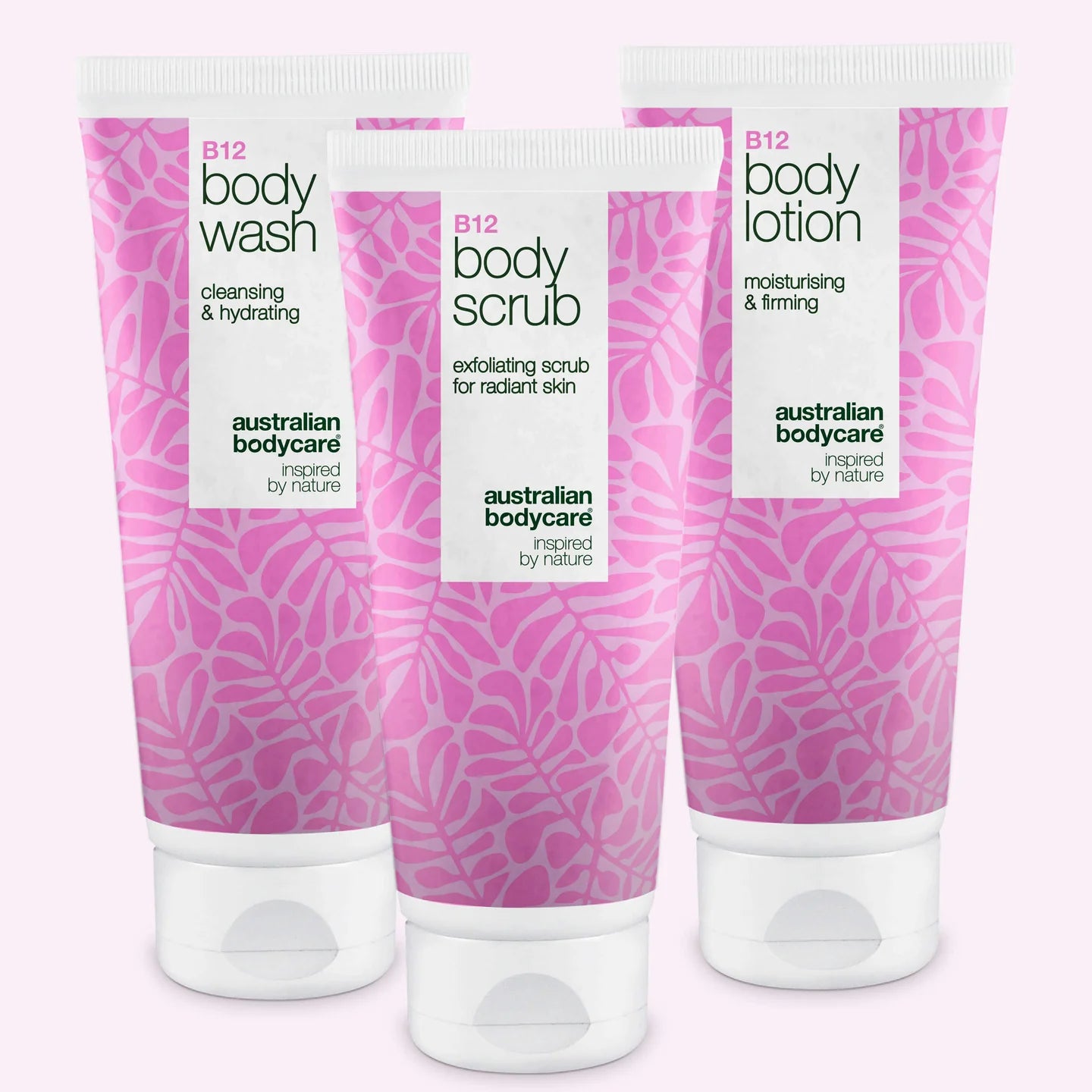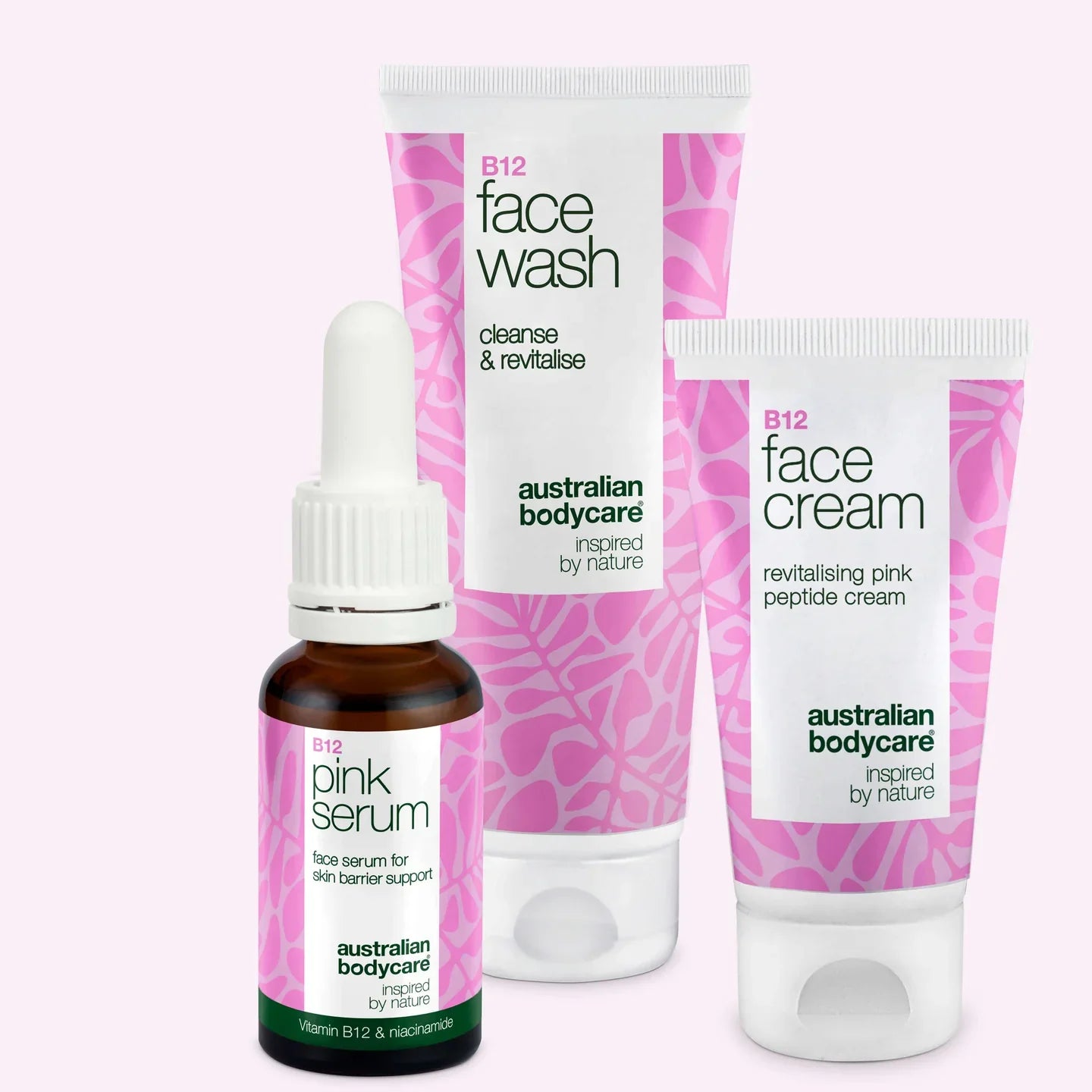How to deal with dry skin
It is uncomfortable and annoying to have dry skin, and the problem will not go away by itself, so something has to be done. Fortunately, there is plenty you can do yourself to heal dry skin. Read more about what dry skin is, and find some good ideas here about treating it.
Table of contents
Dry skin – what is it and who gets it?
Everyone – men and women, old and young – can get dry skin for longer or shorter periods. Most of us know about dry skin on our hands and dry lips in winter, when it is biting cold outside. A good, nurturing skin cream will solve the problem for most people, and it is clearly best if you also remember to use a cream for dry skin preventively, when the skin is soft and normal again.
In general, everyone is more likely to get dry skin in winter, when it is cold outside, and the climate is dry, both outdoors and indoors. In addition, the elderly and those with asthma, eczema or allergies are more prone to getting dry skin. Finally, metabolic problems, diabetes and certain types of medication can also cause dry skin. People who wash their hands often with soap or cleaning products, perhaps in connection with their jobs, are also clearly more likely to get dry skin. They should therefore use a soap for dry skin.
Itching is the most important symptom of dry skin – and the most troublesome too. Dry skin can also be painful, with tight, itching skin. Fortunately, dry skin is not just something you have to put up with – there are good ways to treat and prevent it.
READ MORE: Good advice about dry skin | Products for dry skin
What are the symptoms of dry skin?
Dry skin itches. It is uncomfortable and annoying, and can hurt when the skin feels tight. The skin may also crack, and hurt even more. The skin becomes rough and dry, and there may be red patches. The skin may also begin to peel.
When you scratch, the itching actually tends to get worse. But it is difficult not to scratch. When the itching is really bad, you risk scratching right through the skin. Then it allows access for bacteria, which can cause infections that in the worst cases need to be treated with antibiotics. Thus there are plenty of good reasons to do something about dry skin, before it gets that bad.
People can get dry skin anywhere on the body, but it appears most often on the face, lips, hands, underarms and lower legs.

Dry skin is caused by a lack of water in the upper layer of skin
What causes dry skin?
Dry skin means that there is not enough water in the upper layer of skin, also called the epidermis. The oily content in the epidermis helps to retain moisture. As you grow older, the number of sebaceous glands drops, and there is less natural oil in the skin, so it is less able to retain moisture. Thus older people are especially likely to get dry skin.
Health and heredity
It appears that dry skin may be hereditary. You can be genetically disposed for skin problems such as dry skin. You can also be genetically disposed for allergies, asthma and eczema, which can also contribute to a tendency to dry skin.
Diseases such as metabolic disturbances, diabetes and liver or kidney diseases can cause dry skin. Incorrect diet, such as vitamin A deficiency can also contribute to dry skin. Finally, certain types of medication can affect the skin, so that it becomes more dry. Examples are products for acne, allergies or high blood pressure.
Hormonal changes affect the skin. This can be seen, for instance, with skin problems during puberty. During the menopause, many women will find that their skin becomes drier.
Soap and cleaning agents
Some jobs require frequent hand washing. Soap and chemical cleaning agents or cleaning products with alcohol are hard on the hands, so those who wash their hands often are particularly likely to get dry skin. It is therefore important to remember to take extra care of your hands with products for dry skin to avoid it.
In general, if you have dry skin, it is important to check the soaps, cleaning products and creams you use. They may be too harsh for your skin, and it may help simply to change over to a milder product.
Clothes in wool and synthetic fibre
If you have a tendency to dry skin, you may find it helps to avoid clothes made of wool or synthetic fibres. They can irritate the skin and make dry skin worse. Cotton clothes are often more comfortable if your skin is dry and perhaps itches.
The effects of the seasons
Dry, cold and blustery winter weather is not good for the skin. Most of us can feel how skin gets tighter and drier when it is cold and windy outside. We turn up the heating indoors, but we end with a warm, dry indoor climate with low humidity, and that is not good for skin either. For most of us this dry skin is seasonal: we get dry skin in the winter, but have no problems with dry skin in the summer.
For most people a good cream and some good lip-care products are all they need. For those who already tend to get dry skin, winter weather can make it significantly worse, and they need to prevent or treat dry skin with good products before it gets too serious.
Atopic eczema
It is not unusual for even quite small babies to have very dry skin and atopic eczema, also called atopic dermatitis. This skin condition is seen frequently. It often begins when the baby is a few months old, and it may continue for several years, in some cases right into puberty.
The skin becomes very dry and rough. It may begin to weep, or blisters may form. It is unpleasant and painful. The eczema often appears on the face, throat, backs of the wrists and knees, and inside the elbows.
Atopic eczema can be treated with a rich moisturising cream and with a special ointment for atopic eczema containing cortisone. It is important to use a nourishing and moisturising cream several times a day to give the skin plenty of moisture, also in periods when the eczema is dormant.
Good advice about dry skin
There is no way dry skin will go away by itself, so it is necessary to take action to deal with the problem. What you should do depends a great deal on how seriously you are affected by dry skin. Luckily, there are good chances that you can get dry to heal skin with the right treatment, and, not least, preventive care.
The daily tip for winter dry skin
Exfoliate your skin once or twice a week. Many people remember to use a face scrub, but you should remember to exfoliate all over with a body scrub too. This helps your skin to absorb moisturiser better.
Body scrub from Australian Bodycare is an exfoliating scrub with sandalwood nut shells and natural Tea Tree Oil, which combats winter dry skin and removes impurities.
If you use a Body Scrub from Australian Bodycare, you massage the skin and remove the upper layer of dead skin cells, remove impurities, and cleanse the skin deep down. Sandalwood nut shells are used in the exfoliant, which also contains glycerine and allantoin, which moisturise and soften the skin.
Outdoor and indoor temperatures
Cold, windy winter weather is not good for the skin. Going in and out a lot from cold air outside to warm temperatures inside can also be hard on the skin. The dry air at both temperatures is not the skin’s favourite treatment either.
There is not much you can do about the climate, but you can take good care of your skin with moisturising creams, so that it can withstand wind and weather better. Make sure you air out thoroughly indoors. Green plants help to create a good indoor climate as well. Make sure, too, that it is not too hot. A wood stove is cosy, but it makes the air hot and dry.
The sun is wonderful, but too much sun can also dry your skin, so enjoy the sun in small doses.
Soap and water
Taking a long soak in a hot bath is delightful, but it is hard on the skin. So if you tend to get dry skin, it is best to shorten the time in the bath and keep the temperature down. There is no need to take more than one bath a day, either.
You can hardly do without soap and products to cleanse your body, but choose them carefully, so that you avoid the ones that are worst for your skin. Antibacterial products with a skin-friendly pH are highly beneficial to your skin. Our Body Wash with antibacterial Tea Tree Oil helps to keep the skin free of unwanted bacteria.
If you have serious problems with dry skin, you should not rub and scrub too much on your skin. Try instead to pat it dry with an extra soft towel.
Use a good moisturising cream
After you have had a bath, remember to apply a nourishing moisturiser all over your body. If you have very dry skin, choose a high-fat cream, such as our Body Cream. If you do not have problems with dry skin, you can choose a lighter cream. For daily care to prevent dry skin we recommend body lotion for dry skin with antibacterial Tea Tree Oil.
Remember a good cream for your face, too. The skin on your face is thinner and finer than the rest of your body, so you should choose a cream that is particularly suitable for the skin on your face. This applies especially if you use a face wash, and then it is important to choose a face wash for dry skin.
There are also special creams for your lips, to care for them and protect them against wind and weather. Your hands are exposed, too, so they need special attention with a good hand cream without parabens. The winter weather is tough on hands, and frequent hand washing is also hard on the skin.
There may be situations when it is necessary to supplement your cream with an ointment containing cortisone. It applies, for instance, when dry skin is accompanied by atopic eczema.
In general, it is important to use cream a couple of times a day, and more often if necessary. You can indeed buy lots of good creams, but they only work if you remember to use them!
Wear clothes made of cotton
Wool and synthetic fibres can irritate the skin, and if the skin is dry and irritated already, there is no reason to make it worse. Cotton is far more comfortable to wear, especially next to the skin.
Think about your diet
It is important to drink plenty of water, because the skin can also become dry ‘from inside’ if you do not get enough fluids.
Foods with a high content of fatty acids may also have an effect on the skin. Walnuts and oily fish such as tuna, salmon and mackerel have a high content of Omega-3 fatty acids.
FAQ about dry skin
What can I do about dry skin?
It is important to give the skin plenty of moisture. You can do this with a rich, nourishing and moisturising cream. Next, you can check the soaps and cleansing products you use. Perhaps you can change to milder and more skin-friendly products. Long, hot baths are not good for dry skin. And finally, it may be a good idea to avoid wool and synthetic fibres next to your skin.
What is the most frequent cause of dry skin?
Many things can cause dry skin. Older people and those with asthma, eczema or allergies are particularly at risk of getting dry skin. So are people who wash their hands a lot, for example in connection with their work. The weather plays an important part. Winds and cold, wintry weather are hard on the skin.
Does dry skin itch?
Dry skin will generally itch. It is not good for the skin to scratch it. In the long term it may cause the skin to become thicker and darker. It is therefore important to relieve itching dry skin.
Can dry skin lead to spots?
You can certainly have dry skin and spots at the same time. In fact, you need to take care not to use products that are too harsh and cause drying when combating acne and spotty skin. If you use these products, they dry the skin, and then it will begin producing more grease, which is an ideal basis for spots.
What can you do about dry skin from hand washing?
Washing hands frequently is hard on the skin. But if you need to do it, perhaps because of your job, then it is important to use a mild soap without alcohol and chemicals. Remember to use a good, nurturing cream often on your hands.
Is it always possible to get rid of dry skin?
In the great majority of cases, care with a good skin cream heals dry skin. Sometimes, however, it may be necessary to supplement cream with an ointment containing cortisone. Usually, this requires a prescription, so you need to see your doctor. Another thing you can do is to check the soaps and cleansing products you use, and perhaps replace them with milder products. If none of these suggestions help, you will have to see your doctor, so you can find another solution.

